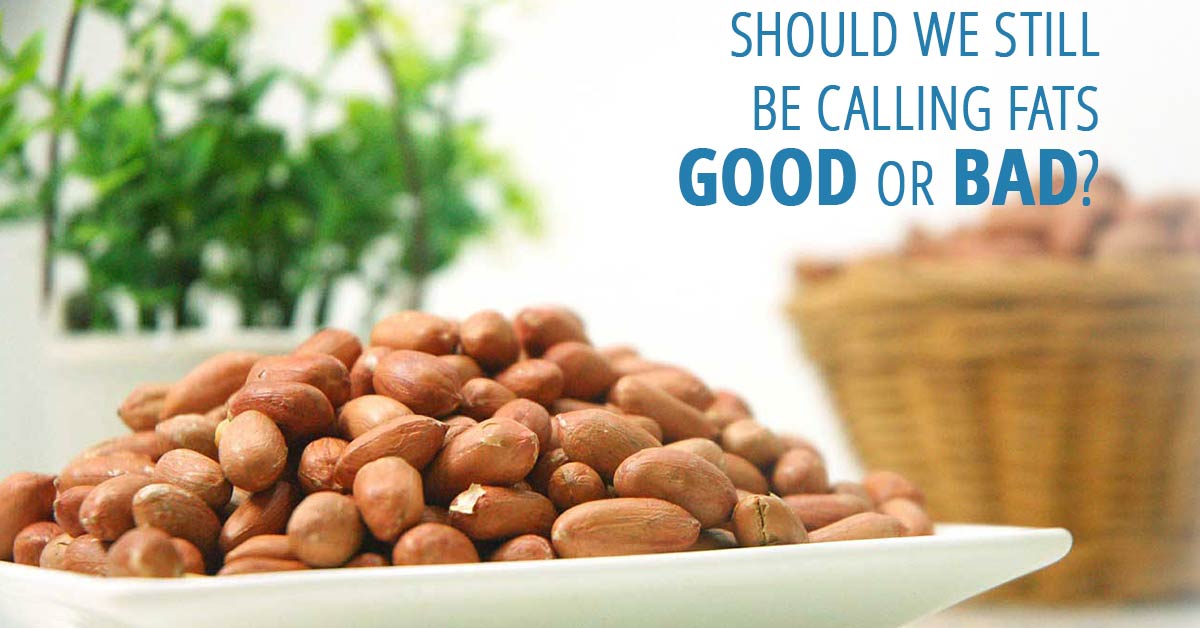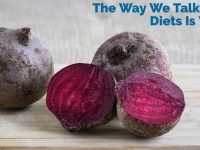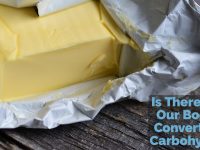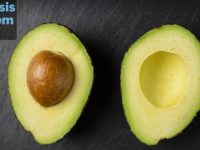It’s been a good year for fat. In March, the US revised its guidelines on dietary cholesterol to allow unlimited consumption, and just earlier this month the FDA formally ruled that trans fat is not safe to put in food. Now, there’s even news that the Dietary Guidelines for Americans are going to remove the “recommended maximum” for dietary fat intake, essentially acknowledging that a healthy diet can contain virtually any amount of fat.
Though the evidence does not support it a high-fat diet for climbers, this is still great news because it’s a triumph of science over dogma. There has never been compelling evidence that dietary fat is by itself harmful to a healthy person who eats a reasonable amount of calories, and government guidelines should not promote any single diet over another in the absence of such evidence. You should be able to choose whatever diet makes the most sense for you without feeling the need to defend the healthfulness of your choice.
So fats are vindicated, at least partially because saturated fat is still recommended to compose no more than 10% of your total daily calories. But even this recommendation appears to be losing its luster, which begs the question:
Is there ANY reason to choose the fats in my diet carefully, or does it not matter because ALL fats are good?
In other words, are there still “good fats” and “bad fats”, or is this sort of dichotomy past its prime? The answer isn’t clear-cut, so let’s examine it from both angles.
Point: All Fats Are Good Fats
There’s not a lot of evidence that any single fat—whether saturated, monounsaturated, or polyunsaturated—can strongly affect the health of a person with a healthy, eucaloric diet (eucaloric means that it provides exactly the number of calories a person needs to maintain health without gaining or losing weight). It’s true that different fats affect blood cholesterol levels in different ways, but even the saturated fats that have long been cast as villains have recently begun to be accepted as probably not a significant factor in your cardiovascular health.
One big reason for this—and a reason that has oft been ignored by those who think a high-carb diet is perfect for everyone—is that fats do not exist in a nutritional vacuum. Rather, they exist in a relationship with every other energy-containing nutrient you consume, and every one of those nutrients affects blood cholesterol.
It’s unfair to pick on saturated fat, or any fat, as particularly “bad” when carbohydrates are just as capable of driving up blood cholesterol. This is especially true when you consider that saturated fats also tend to increase the good HDL cholesterol—a feat that no other nutrient is nearly as good at.
Another reason it might be time to stop labeling fats as “good” or “bad” is that fats are, by and large, not an essential part of our diet, and as such our body is quite capable of using virtually any fat it comes across for most of its structural and energetic needs. We do need a small amount of the essential omega-3 and omega-6 fats—our body cannot produce these itself, and they’re an integral part of our cell membranes—but apart from these essential fats, no other dietary fat has direct control over your health; they are incapable of miracles and anathemas alike.
So perhaps it’s not quite accurate to call all fats “good fats”—but there’s a lot of justification to say that all fats are “neutral fats” because the healthfulness of your diet has less to do with what specific fats it winds up being composed of and more to do with what particular foods you eat. If your diet is high in healthy foods that happen to be fatty, then that fat cannot render your diet unhealthy.
Counterpoint: There Are “Better” and “Worse” Fats
Okay, so a healthy person with a healthy diet probably doesn’t need to worry about whether coconut oil, olive oil, butter, or canola oil is better—and you’re a climber, so you’re probably a healthy person, and you probably have a reasonably healthy diet (even if it’s not performance-tuned). But what about a “normal” person who might eat too much food in general, and way too much junk food in particular—should they be more discerning?
Now that we’re moving outside of the realm of “healthy diets”, the answer is yes. If you eat a lot of junk food, you’re going to be getting most of your fat in two forms: linoleic acid, an omega-6 fat; and palmitic acid, a saturated fat. If you don’t eat a lot of whole foods, then you’re also going to be getting few omega-3s and monounsaturated fats. Together, this can spell trouble.
The main concern with getting too many omega-6s is that it becomes difficult to simultaneously get enough omega-3s. Omega-6 fats are essential, but when consumed in excess they begin to take over our cell membranes and the omega-3 fats that are also supposed to be there are pushed out. We need both omega-3 and omega-6 fats to respond to inflammation appropriately, and a cell membrane that has either in disproportion (yes, there is such a thing as too many omega-3s, too) can make it difficult to heal appropriately, adapt to exercise, fight off infection, etc.
Omega-6 fats are not “bad”—as just mentioned, they are essential and we need them—but they are a fat the typical person gets too much of, and at the expense of a fat they should probably get more of (omega-3s). This means that they are, in many ways, a worse choice for most people—even if a healthy person with a great diet shouldn’t worry about them at all.
Similarly, palmitic acid is perhaps the worst saturated fat. While most saturated fats improve the total-to-HDL cholesterol ratio—meaning they increase HDL cholesterol in pace with LDL cholesterol—palmitic acid is the only commonly consumed saturated fat that hinders it. It’s nowhere near as bad as trans fats, but neither is it beneficial.
Since the FDA began to encourage companies to phase out trans fat over ten years ago, palm oil (which is rich in palmitic acid) has become the most popular replacement. Foods that used to be high in heart-clogging trans fat are now high in slightly less heart-clogging palmitic acid—and while this is certainly better, it’s tough to call palmitic acid a “good fat” in this situation.
Again, in a healthy diet, palmitic acid is unlikely to be a cause for alarm. In such a diet, it’s only a single component, and all of the rest of the fats and proteins and carbs in your diet will weigh against it. But in a diet high in processed food, it could be the single most important saturated fat, and that makes it a “worse” choice.
There are also “better” choices, too. Some food companies have begun using high-oleic sunflower or safflower oils that are rich in monounsaturated fats. Others fry their foods in coconut oil, which will at least boost your good HDL cholesterol along with the bad LDL. None of this should be taken as an argument to eat more junk food, but rather that there are better and worse ways to manufacture junk food.
Conclusion: Where Does Your Fat Come From?
In the end, I’m tempted to agree with the notion that all fats are good fats, but with a caveat—I would say that all fats are good fats, but most of your fat should just naturally come from the foods you’re eating and not be added. I’ve met many people who hear that all fat is good and then proceed to butter the bejeezus out of everything and use extra cooking oil in their stir-fries. All that does is add extra calories to your diet; it certainly doesn’t make your meal healthier.
If your diet is high in nuts, seeds, fatty fish, whole coconuts, eggs and the occasional dish cooked with minimal butter or oil, then there is no problem with the fat in your diet, no matter how much of it there is. If your diet is high-fat because you love butter more than Paula Deen and think eating coconut oil by the spoonful is healthy, then you might want to rethink your position on fat.
So take a look at your diet and…
- STOP adding copious amounts of fat to dishes just because you think all fats are healthy.
- STOP being afraid of the fats that are part and parcel with nuts, seeds, eggs, coconuts, certain types of meat, etc.
You shouldn’t be afraid to eat foods that are naturally fatty, but you also shouldn’t believe for a second that fats are so universally good that everything is improved by their presence.
That’s the long and short of it—there’s not really such a thing as a “good fat”, but neither is there a “bad fat”. There are just good and bad dietary choices, and they come in all forms.















Great article about a confusing topic.
However one thing not mentioned is about heated oil. Is oil heated to a high temperature bad in a way that unheated oil is not? Does heating oil change it so its no longer healthy and if so does this imply fried foods are still considered bad and thus best avoided? Are some fats better for cooking with than others?
Haha, yea, true, fats can still change depending on other conditions, such as age or heating, both of which can oxidize the fat and create unhealthy compounds. It’s probably worth writing another article about this topic because it’s also a bit confusing, but in the meantime a quick summary is this: All cooking oils have smoke points above which small amounts of toxic compounds can be created; it’s unclear how dangerous these compounds are (they’re only formed in very small amounts and should be easily detoxified by the liver), but they’re also easily avoided by cooking with the right oils (i.e., oils with a high enough smoke point for your cooking heat). Fried foods are “bad” (or rather, best consumed in lesser quantities) because they’re extremely calorie-dense and nutrient-poor and thus hard to include in more than minor amounts in any healthy diet.
As for the best fats for cooking with, I generally just use the ones with the highest smoke points that have a favorable flavor to the cooking I’m doing. I use high-oleic sunflower oil frequently as it has a smoke point somewhere in the 400s, but avocado oil has an even higher smoke point if you’d rather use that. Also, broadly speaking, refined oils have a higher smoke point than unrefined oils and so are better for cooking.